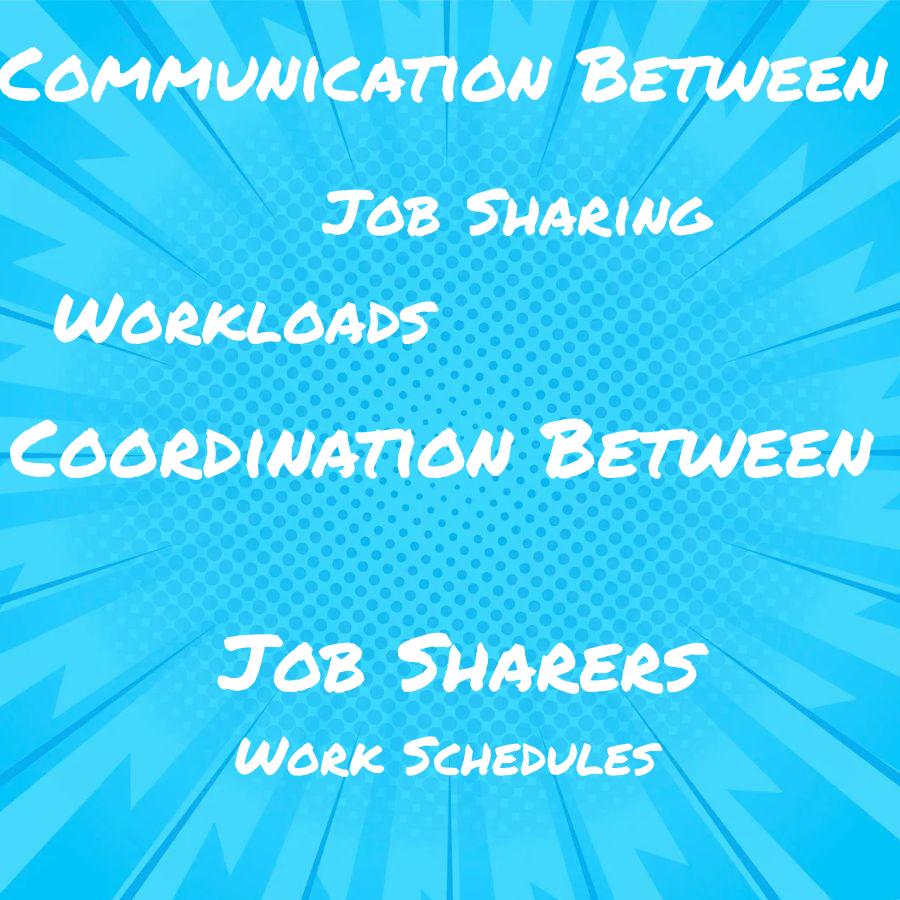Job sharing can affect workloads and work schedules by allowing two or more people to share a single job, thus distributing the workload and providing flexibility in terms of hours worked.
Job sharing is becoming more popular in the workplace, with many employers offering it as an alternative to traditional full-time employment. But how does job sharing affect workloads and work schedules? In this blog post, we’ll explore the pros and cons of job sharing, as well as its impact on workloads and work schedules.
We’ll also discuss ways that employers can make job sharing a successful venture.
Job Sharing Benefits

This type of arrangement can have many benefits for both employers and employees. One benefit is that it allows employers to reduce their labor costs by splitting one full-time position into two part-time positions, while still having the same amount of work done.
It also gives employees more flexibility in their schedules, as they can split up tasks and responsibilities according to their own availability. Job sharing can help reduce stress levels for employees who may be overwhelmed with too much work or responsibility.
Another benefit of job sharing is that it encourages collaboration among team members, as each person has a different perspective on how to approach tasks and projects. This helps foster creativity and innovation within an organization, which can lead to better results overall.
Job sharing allows employers to tap into a larger pool of talent since they are able to hire multiple people instead of just one individual for a single role.
Workloads of Job Sharers
When it comes to workloads, job sharers typically divide the duties and tasks associated with the position between them. This means that each individual takes on a portion of the workload, allowing them to manage their own time and schedule more effectively.
By splitting up the workload, job sharers can also benefit from having someone else to collaborate with and provide support when needed. This can help reduce stress levels and make it easier for both individuals to complete their tasks efficiently.
Job sharing allows for greater flexibility in terms of scheduling since each person only has to work part-time hours instead of a full-time commitment.
Work Schedules of Job Sharers
When it comes to work schedules, job sharers typically divide up the hours of the position between them. This means that instead of working 40 hours per week, each job sharer works 20 hours per week.
This allows for greater flexibility in terms of when they work and how much time they have off during the week. Job sharing can also help reduce stress levels since each person only has to focus on half as many tasks as a single employee would have to do if they were working full-time.
Having multiple people working on a project can often lead to better results due to increased collaboration and creativity among team members.
Communication Between Job Sharers
When it comes to communication between job sharers, it is essential for them to be able to effectively communicate with each other in order to ensure that their workloads and work schedules are balanced. This means that they need to discuss how tasks will be divided, what responsibilities each person has, and when they will switch off from the job.
They should also have regular meetings so that any changes or updates can be discussed and agreed upon by both parties. By having clear communication between job sharers, workloads can be managed efficiently and work schedules can remain organized.
Coordination Between Job Sharers
When it comes to coordinating between job sharers, there are several factors that need to be taken into consideration. First, both parties must agree on how the workload will be divided and how they will communicate with each other about their progress.
They should also decide who will take responsibility for certain tasks and when those tasks should be completed. They must establish a schedule that works for both of them so that neither person feels overwhelmed by the workload or has too much free time during their shift.
It’s important to set up regular check-ins so that each party can stay informed about what the other is doing and provide feedback if needed. By taking these steps, job sharers can ensure that their workloads are balanced and their work schedules are coordinated effectively.
Potential Challenges With Job Sharing
While this can be beneficial for both employees, it can also present some challenges. One potential challenge with job sharing is communication.
It is important that both employees are on the same page when it comes to their roles and responsibilities in order to ensure that tasks are completed efficiently and effectively. There may be difficulty coordinating schedules between two people who have different availability or preferences for working hours.
This could lead to an uneven distribution of workloads or missed deadlines if not managed properly. Job sharing requires trust between the two employees as they must rely on each other to complete their respective tasks in a timely manner without any supervision from a manager or supervisor.
Related Reading
- How Does Job Sharing Affect Productivity and Job Performance?
- How Do You Address Concerns About Work-life Balance and Workload When Recruiting for Job Sharing Roles?
- How Can Job Sharing Help With Work-life Balance?
- What Are the Benefits of Job Sharing for Employers and Employees?
- What Are the Potential Drawbacks of Job Sharing Arrangements?